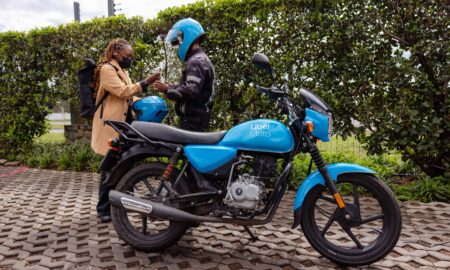
Uber is not concerned over Johannesburg officials mulling new regulations for the Internet ride sharing service in the city.
On Tuesday, Bloomberg reported that the City of Johannesburg is consulting with provincial officials in Gauteng to regulate Uber.
Issues that the city is reportedly looking into regarding Uber include how the service can be more in line with black empowerment requirements and how the local public transport industry can employ its own digital technology.
Currently, Uber drivers in Johannesburg have chartered services licences, which are less onerous to obtain than metered taxi permits.
However, Alon Lits, who is Uber’s general manager for sub-Saharan Africa, said Johannesburg’s rethinking on the Internet service could help introduce a better licensing format.
“If you look at the existing sub-categories of operating licence, Uber partners and the way they operate do not fit into chartered services and do not fit neatly into metered taxi,” Lits said.
“So, what you need to do, and something that we’ve been trying to do at a national level, is actually … create a new category for what we call a transport network operator and that describes the way the drivers operate and regulate in an efficient manner.”
Uber has had a smoother ride in Johannesburg where city regulators haven’t enforced strict rules on the company.
Uber, though, has had a different experience in Cape Town and even Durban.
On Tuesday, Lits revealed that over 200 Uber cars have been impounded in Cape Town in 2015 owing to drivers not meeting that city’s metered taxi permit requirements.
A breakthrough with Western Cape provincial authorities in Cape Town could happen next week as Uber is pushing for its drivers to meet the province’s requirements, Lits said.
Meanwhile, he said that growth for Uber in Durban has also been muted owing to regulatory pressures in that city.
“Durban has a full moratorium on both metered and chartered service operating licences. This moratorium has actually been in place since 2010,” said Lits on Tuesday.
“We’ve been speaking to the regulator in Durban since mid-2014 to try and get this lifted, to try and get this resolved. Nothing’s changed. A decision that was taken was to partner with individuals who in this case can’t even apply for the operating licence, but have all the other requirements, which I previously mentioned,” he added.
“Surprisingly, we’re not aware of any vehicles being impounded in Durban,” Lits said.
Asked whether new regulations in Johannesburg could rather risk limiting Uber’s operations in the city, like it has experienced in Cape Town and Durban, Lits was upbeat.
“So, we see it as a positive. We see it as the City of Johannesburg and Gauteng taking a positive step forward, embracing technology,” said Lits. “So look, I think it depends on the approach that you take to regulation.
“We don’t think that regulation is a bad thing. We want to make sure that partners have a route to licensing if this new category of framework creates a route to licensing for driver partners, then we’d welcome it,” he said.
Uber has recorded over 2m rides in South Africa this year, Lits further added. — Fin24




